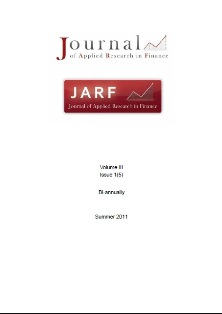THE ROBUSTNESS OF OKUN’S LAW: A TIME SERIES VALIDATION IN THE CONTEXT OF PAKISTAN (1975-2009)
THE ROBUSTNESS OF OKUN’S LAW: A TIME SERIES VALIDATION IN THE CONTEXT OF PAKISTAN (1975-2009)
Author(s): Muhammad Mushtaq Khan, Khalid Zaman, Mehboob AhmadSubject(s): Economy
Published by: Reprograph
Keywords: economic growth; unemployment; Okun’s Law; Inverse Okun’s Law; cointegration; Pakistan.
Summary/Abstract: Growth is a matter of extreme importance for the countries of developed and developing world. Sustained growth with employment generating policies eventually trims down the critical problem of unemployment. This paper emphasizes the link between GDP per capita and unemployment rate, as described by Okun’s law. In a developing country like Pakistan, Okun’s law approach is employed on a data set of 35 years starting from 1975-2009. Okun’s law helps in examining the relationship between economic growth and unemployment. Non-parametric estimates of the potential output are calculated. The results are in the range of 6.73 to13.22 percent. In this paper three different methods have been used to test the validity of the Okun’s law in the context of Pakistan i.e., Original Okun’s Model, Inverse Okun’s Model and Normalized Cointegration Okun’s model. The empirical analysis shows that a rise of one percentage point of unemployment is associated with a decline of 0.15, 0.41 and 0.63 percentage point of real GDP growth in the all three models respectively. The result suggests that when the state of the economy improves, the unemployment rate falls, though, this relationship is less than one to one.
Journal: Journal of Applied Research in Finance (JARF)
- Issue Year: III/2011
- Issue No: 05
- Page Range: 98-116
- Page Count: 19
- Language: English

